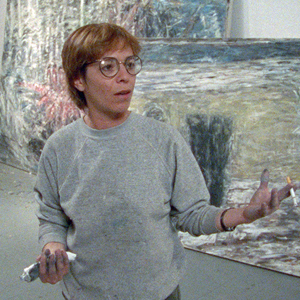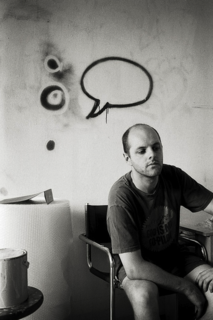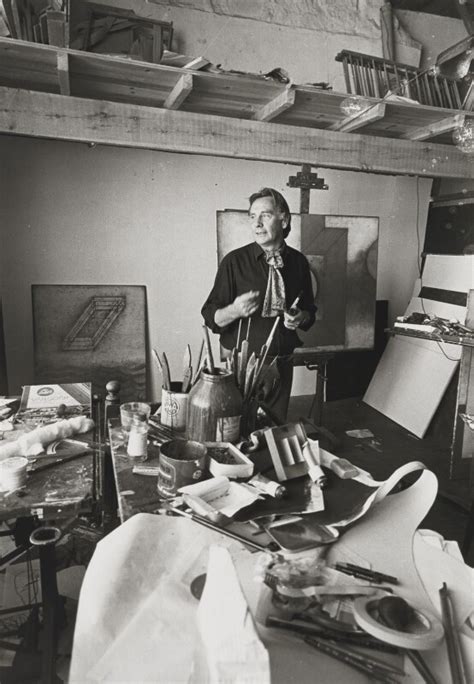A Quote by Kevin Powers
There's something immediate about the experience of reading a poem. It makes sense in my own mind, but I'm trying to figure out a way to articulate it... It's like looking at a painting: you're able to take in the totality of the work all at once, and so processing whatever information that painting is giving you is almost secondary to simply apprehending what's in front of you.
Related Quotes
Every single painting is different. I'm always trying to figure out what I'm interested in. Usually when I go through and I make the collages or the images for ideas that I want to paint, it's like an Ouija board. Each painting I do is trying to understand what the hell I'm looking at, or want to look at.
You have bits of canvas that are unpainted and you have these thick stretcher bars. So you see that a painting is an object; that it's not a window into something - you're not looking at a landscape, you're not looking at a portrait, but you're looking at a painting. It's basically: A painting is a painting is a painting. And it's what Frank Stella said famously: What you see is what you see.
In fine arts, when you make a painting, it's just a painting. But if you make a painting in the entertainment industry, it can be an album cover or a t-shirt or a logo. I like that entertainment has this usefulness - that it's ultimately trying to make a bunch of people feel something, and to think about life and be able to use things that were so simple and direct but potentially have a really powerful effect.
When I am in a painting, I'm not aware of what I'm doing. It is only after a sort of 'get acquainted' period that I see what I have been about. I have no fears about making changes, destroying the image, etc, because the painting has a life of its own. I try to let it come through. It is only when I lose contact with the painting that the result is a mess. Otherwise there is pure harmony, an easy give and take, and the painting comes out well.
There are absences, but there are also presences. It's about how painting can evolve its own abstractions. I didn't know the painting was going to be about that, but it has to have that journey; I have to learn something, I have to end up somewhere I didn't expect to be, otherwise, I don't think it's painting.
When a spectator approaches a painting with his own particular set of filters or theories, be they historical, political, intellectual or whatever - he either finds what he is looking for or dismisses the work as irrelevant. He has deprived himself of the possibility of any fresh experience or revelation by looking only for confirmation of that which he already 'knows.
All that stuff about flatness - it's this idea that painting is a specialized discipline and that modernist painting increasingly refers to painting and is refining the laws of painting. But who cares about painting? What we care about is that the planet is heating up, species are disappearing, there's war, and there are beautiful girls here in Brooklyn on the avenue and there's food and flowers.
I mean, part of the justification for art is art history, the fact that you're part of this tradition. You can't really operate outside of it. So looking for what this work is really about, if I look at Velázquez, if I look at Las Meninas or The Tapestry Weavers [1657] or something and really study it and try to figure out what that painting is really about, then I find relationships between what I'm trying to do and what he was doing.
It was a figure painting class, where you had a model, and [Robert von Neumann ] would wander around and he'd come up behind someone and say, "Well, what are you trying to do?" And if you told him what you were trying to do, he would then proceed to discuss this with you and suggest things that you might look at and ways in which you could improve what you were attempting to do, etc - never worked on your painting, never touched your painting but talked extensively about what you were trying to do.





































